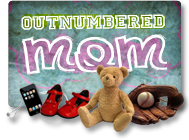
The Indian government wants Britons to adopt India's street children
British couples are being urged to help save millions of Indian baby girls from lives of abuse and misery.
The Indian government is relaxing its adoption rules to encourage more British and other western couples to reduce the number of orphans living on the streets, and abandoned in squalid and dirty children?s homes throughout the country.
There are more than 11 million abandoned children in India , and ministers want more families ? both Indian and British ? to offer loving homes.
Under current rules, it takes more than a year for British and other foreign families to successfully adopt an Indian baby, but under new government plans couples will be able to complete the formalities in just 45 days.
The emphasis will be on finding new families for thousands of babies, most of them unwanted girls dumped in street cots attached to childrens homes in India's major cities.
The government is anxious that infants dumped in homes are given to new families before they are six months old. They fear institutionalisation could starve them of the love and nuturing they need to develop.
The new rules will give new hope to British families who have faced increasing problems adopting overseas. In the last few years Russia, China, Romania and Cambodia have all raised bureaucratic hurdles, and some, like Romania, have suspended foreign adoptions altogether.
India however has unique problems which ministers believe foreign adoption could play a part in solving. Thousands of Indian baby girls are killed at birth by poor mothers who cannot afford the lavish weddings and dowries they would one day be lumbered with, and also by middle-class women under pressure to bear their husband a prized son.
The government has encouraged more street cribs to give mothers of unwanted daughters an alternative to female infanticide. If it is successful, it will mean even more baby girls being dumped in orphanages, and more to find families for.
Officials say they will still give priority to Indian families looking to adopt, but traditional prejudices against adopted children mean too few come forward to help. Each year around 4,000 orphans are adopted, and only three thousand of them are taken in by Indian families.
In some Delhi orphanages, like North Delhi's Cradle home,where around five babies are dumped every week, as many as fifty per cent of unwanted children go to families in Britain , the United States , Spain and Denmark.
Staff at the home say Indian families are often reluctant to take dark skinned babies or children whose complexions are not a good match with their own. The stigma against adoption and infertility is so great that many families adopt a well-matched child and pretend to relatives that it is their own baby.
L.K Mittal, chairman of the Indian government?s Central Adoption Resource Agency, said the new rules, which will come into force in two months? time, are aimed at making more of India ?s orphans available for adoption, and making easier for British and other western couples to give them loving homes.
There will be more domestic adoptions, and more foreign adoptions. The rules we have now are too lengthy and cumbersome it takes a year for a foreigner to take a child from India , but it should be done within a couple of months. Every child needs a home with loving parents.
Where there's a threat of institutionalisation [for the child], and there's a loving foreign family, that's a better option than the orphanages. We want a loving, caring family for every child.' To adopt an Indian child, couples must be financially secure and must have been together for more than five years. They must be between 30 and 55, with a combined age of less than 90. Single people are eligible but not same-sex couples.
The vetting procedure for Britons adopting in India is the same as if they were adopting within Britain. Potential adoptees first have to undergo a 'Homestudy' assessment by the Department for Education and Skills to check they are suitable parents to adopt.
Once a Home Study Report has been issued, the search begins for a child cleared for adoption in India. When a child is matched with British parents, the Indian government's Central Adoption Resource Agency and the courts must issue 'No Objection Certificates' before the adoption is completed.
Under this system, the Indian end of the process has taken a year to complete. The Indian government is planning to impose short deadlines on each stage of the process to make sure it is completed within 45 days. The new rules will come into force within the next three months.







No comments:
Post a Comment